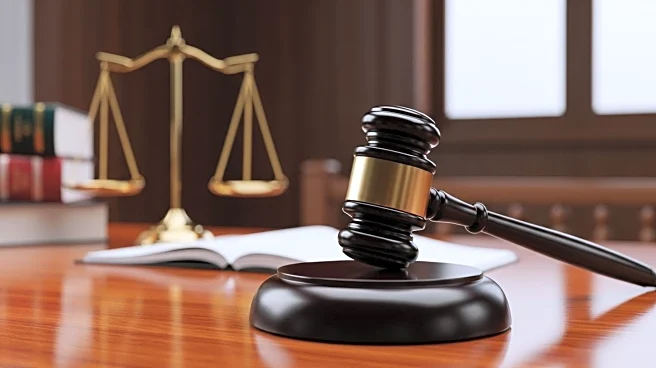What's Happening?
Ryan Routh is currently on trial for allegedly attempting to assassinate President Trump while he was playing golf in South Florida last year. Routh, who is representing himself, has called his friend Marshall Hinshaw to testify as a character witness. Hinshaw described Routh as a spirited and reliable friend, suggesting that Routh's personal convictions might have led him into trouble. Prosecutors allege that Routh meticulously planned the assassination attempt, including purchasing a military-grade weapon and researching Trump's movements. Routh was arrested after allegedly fleeing the scene when a Secret Service agent spotted his rifle. He faces up to life in prison if convicted.
Why It's Important?
The trial of Ryan Routh highlights the intense political divisions in the United States, as well as the security challenges faced by public figures like President Trump. The case underscores the potential for political grievances to escalate into violent actions, raising concerns about the safety of political leaders. If convicted, Routh's case could serve as a precedent for how the legal system handles politically motivated crimes. The trial also reflects broader societal issues, including the influence of personal convictions on behavior and the complexities of self-representation in legal proceedings.
What's Next?
As the trial progresses, the outcome will depend on the jury's interpretation of Routh's actions and intentions. Routh's decision to reject a plea deal and represent himself suggests he is hoping for an acquittal or mistrial. The fractured political environment in the U.S. may influence the jury's decision, potentially leading to a mistrial if Routh can sway one or two jurors. The trial's conclusion will have implications for Routh's future and could impact public discourse on political violence and security measures for public figures.
Beyond the Headlines
The trial raises ethical questions about the motivations behind politically motivated crimes and the role of personal convictions in shaping behavior. It also highlights the challenges of self-representation in complex legal cases, where defendants may struggle to effectively present their defense. The case may prompt discussions on the need for enhanced security measures for political leaders and the importance of addressing political grievances through non-violent means.









